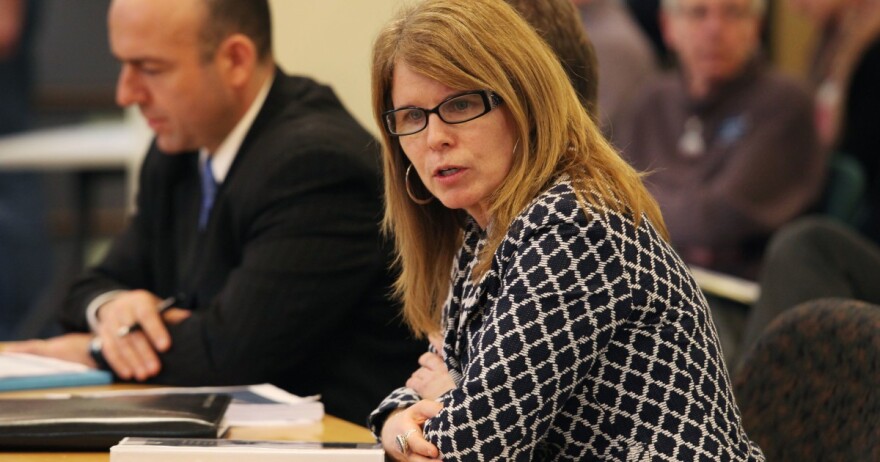Florida hospitals are stressed. They're working to get thousands of coronavirus vaccines to their staff and supporting efforts to vaccinate the broader community. This while also dealing with a surge in COVID-19 patients.
Mary Mayhew, former Agency for Health Care Administration Secretary and current President and CEO of the Florida Hospital Association spoke with Health News Florida's Stephanie Colombini about what kind of support hospitals need.
What are the biggest challenges hospitals are facing trying to distribute these vaccines?
This is an unprecedented effort to stand up the infrastructure to deploy the volume of vaccines to millions of Floridians in such a short time frame, so hospitals are managing this at the same time that they are seeing a dramatic increase in COVID hospitalizations.
The bottom line is it takes staff. We need staff at our bedside to care for patients, those with COVID and those who are in the hospital for other services, and we need staff to administer the vaccines.
We have hospitals that are going through their HR records to recruit retired nurses back to support the vaccination efforts. We have hospitals that are contracting with agency staffing to support community-based vaccination sites.
And Gov. Ron DeSantis said the state is hiring 1,000 nurses to help, which you applauded. But he also put some pressure on the hospitals and said if facilities don't get shots in arms fast enough, the state might divert some of their supplies elsewhere. What was your reaction to that?
Look, at the end of the day, we have this shared goal to urgently deploy this vaccine to vaccinate as many people as possible. This is going to require a community, regional approach to coordinate efforts to maximize staff.
If that means transferring vaccine to the federally-qualified health centers, to a large medical practice, to the county public health department, etc., that supports our goal, the governor's goal, to vaccinate as many people as possible as quickly as possible.
You mentioned staff, what else would help hospitals the most right now?
The biggest, well one of the biggest challenges, because of the logistics involved, the level of planning, the scheduling of appointments, the scheduling of staff, it is the unpredictability of how much vaccine will be allocated and when. Not knowing week over week what the state is going to receive for vaccine and how that vaccine will be allocated.
So how can the state and federal government support hospitals in terms of that communication?
We know that this is all dependent upon manufacturer production levels, and how the federal government then distributes that vaccine. But increasing the predictability, being able to plan over the course of three, four, six weeks – that will help to support not only the logistics, but it will create manageable expectations of how soon individuals can expect to be vaccinated.
The worst possible scenario is setting up these public vaccination sites, having the staff there, having people scheduled for appointments, having them show up and not have vaccine available.
Is too much falling on the hospitals right now? They've got to deal with this COVID surge, they're treating other patients and then they have to take the lead on vaccinations. So are there community partners that can help ease some of that pressure?
Well hospitals are significant community partners. Throughout the pandemic, they have been working collaboratively with other hospitals, with other community health organizations, with our nursing homes, elected officials and county health officials.
There is no way that this can be done solely by hospitals, and that is well understood. You have to draw upon other resources within the community, other health care staff working in medical practices, working in federally-qualified health centers, ambulatory surgical centers, etc. That's the only way you can manage the amount of workforce that is needed while hospitals are also seeing an increase in COVID hospitalizations.
There's just not enough staff to go around. So we've got to be focused on maximizing regionally and efficient use of all individuals who can help to administer the vaccine.





